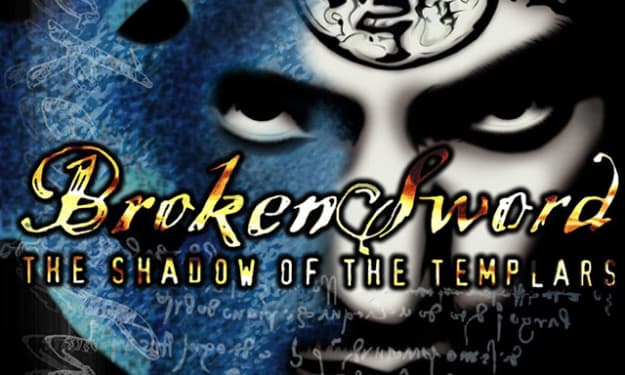Winning EVO Through Taoism
Fighting Games, Wu Wei, and The Art of Laming Out

As someone who takes things way too seriously, I've been thinking about my beliefs and how they could be applied to fighting games, as well as how I could describe that relationship to other players in a way that could be helpful. This is a write-up about the connections that I've recently made between the two and how they've helped me improve my play in fighters and understand my opponents better.
To start, I'm a Taoist. There's lots of debate whether Taoism is a philosophy or a religion, and I think the difference depends on whether you practice its aspects of mysticism or not. For me, it's simply a set of beliefs. Taoism, as you might expect, focuses on the Tao (lit. The Way), which is the perceivable but indescribable flow of the universe. It's about embracing the random nature of events, taking things as they come, and understanding one's place in the cosmic whirlwind that is reality.
One of Taoism's core texts is the Tao Te Ching (or Dao De Jing depending on the translation). Written in the dynastic period of China's history, much of it has direct references to things like war, politics, and acting as a beneficent ruler of people. The reason it stands as a useful text in the modern era, where I'd say most people aren't waging wars and acting as rulers, is because many of the lessons taught can be extrapolated into an average life.
Within this text, we arrive at our main point. A core tenet described there is the concept of wu wei. Creel gave this concept two definitions that are not mutually exclusive from one another.
- An "attitude of genuine non-action, motivated by a lack of desire to participate in human affairs," or,
- A "technique by means of which the one who practices it may gain enhanced control of human affairs".
As demonstrated in the infamous trolley problem, choosing not to act is an action in and of itself. Wu wei teaches that the action of inaction, or choosing not to act unnecessarily, is a powerful tool. Taken to its extremes, it promotes that a great ruler is one who does nothing at all.
Pulling this back into the more relatable context of fighting games, wu wei can describe a very real path to victory in every round. The act of doing nothing, especially in a genre where overwhelming your opponent with rapid and unpredictable options is encouraged, sounds like it could hinder your ability to win. But applying wu wei correctly can do the opposite, and we've seen this before.
Justin Wong and Hungrybox are two wildly successful players who, knowingly or unknowingly, ride this philosophy to victory time and time again. They're famous for the act of "laming out" their opponents. They gain an advantage in the round and then position themselves to remain (comparatively) inactive. But even far from the Top 8 stage of EVO in the alternate dimension of pure chaos that is Ranked Play, this strategy works, albeit from a different angle.
Most players online in popular fighting games are very tuned to a particular style of play, even to the point of habit. They often flowchart against opponents in a way that works for them at least 51% of the time. There's no reason to expect Nameless Juri #71 to play much differently than #70 did. But adding patience and inaction to your arsenal throws a wrench in the gears that turn in their head, and you can see it almost immediately in their behavior.
An experiment: If your opponent is cornered and you score a knockdown, don't stand point blank to pressure their wakeup. Try backing up a bit to about half-screen and just wait. Oftentimes they'll be perplexed to a level that you can see in their gameplay. They'll do things like downback or neutral jump, unsure of your plan. The wakeup super that they're so accustomed to using to steal rounds against the aggressive players on the ranked ladder is no longer an option. Meanwhile your mere presence at an inconvenient range becomes the threat. Your inaction drives them to make mistakes. As the level of play increases, this situation gains more and more levels and nuance, but it's an exercise to start learning the power of wu wei.
There are of course many caveats to this strategy as there are with any other. Some characters are weaker at this style of play, some players find it boring or ineffective, and becoming repetitive leads to becoming predictable, allowing your opponent to find better options through reinforcement. This is also not something that can be applied at round start, every single round. It’s important to use more aggressive tactics to establish a life lead, however small, before forcing your opponent to take action through your own patience.
This is just an illustration of how adding the action of inaction and a dose of patience to your gameplay can throw more common opponents off their mental balance. This is just Level 1. Once you're practiced at using inaction to your advantage, returning to an aggressive style mid-round resets their thinking again, possibly re-opening them to tricks that they had adapted to previously. Then you can switch it up once more, and so on.
As a side note: many experienced players might have reached this point and said, "Duh. This is basic shit." However I know through experience that a vast amount of beginner and intermediate players don't even consider that doing nothing can be a good thing. Many can be trapped under the assumption that if they're not pressing buttons and making their opponent block, they're losing, and that's far from being the case every time. It’s about experimentation, trial and error, and finding a healthy balance between overwhelming aggression and building tension through inaction.
Just give it a try, and let me know what you think.





Comments
There are no comments for this story
Be the first to respond and start the conversation.